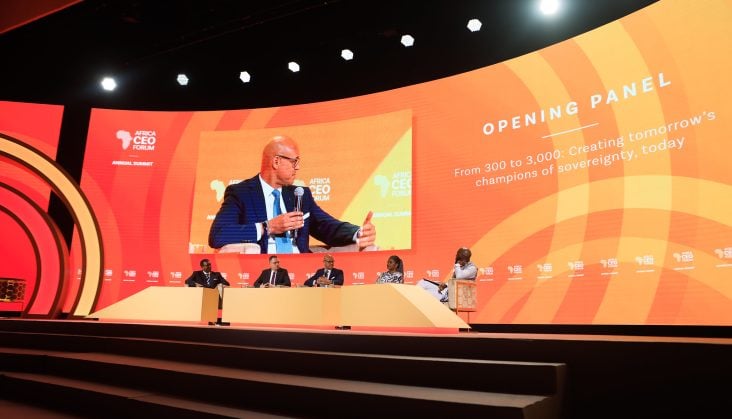
African corporations are facing challenges in competing with low-cost rivals due to costs and delays, according to their statements. The complexity of each country having its own laws is cited as a major obstacle. Jeremy Awori, the head of Ecobank, expressed these concerns during The Africa CEO Forum in Abidjan on 5-6 June. The African Continental Free Trade Area (AfCFTA), which was signed by 54 out of 55 African Union (AU) states in 2019, aims to achieve significant tariff reductions within a five to ten-year timeframe. The International Monetary Fund (IMF) predicts that this agreement could lead to a 10% increase in per capita GDP and a 50% rise in intra-African trade. However, the implementation of AfCFTA faces significant challenges. Wamkele Mene, the secretary-general of AfCFTA, highlighted the issue of market fragmentation, which has worsened in recent decades and negatively impacted various economic activities in Africa. The example was given of a company with subsidiaries in Rwanda and the neighboring Democratic Republic of Congo, which have to use a bank in New York for money transfers despite being only 20 kilometers (12 miles) apart. The high customs duties, which can exceed 50% in some cases, and non-tariff barriers such as border delays and administrative procedures, impose significant costs on corporations. These challenges have affected African companies' competitiveness compared to their counterparts in other developing countries. Despite the potential gains of AfCFTA, the number of African companies with a turnover exceeding one billion dollars has decreased by 6% since 2015, while Latin America and India have experienced an increase of almost a third during the same period. African leaders emphasize the need to support future African champions in global value chains and to develop intra-African trade, which currently represents only 20% of trade volume. The COVID-19 pandemic and conflicts in other regions have exposed Africa's dependence on Western-made vaccines, Asian-made protective gear, and imported food supplies. There is a call to learn from these challenges and work towards self-sufficiency in areas such as food production and fertilizers.
Copyright © ENTREPRENEURSHIP DEVELOPMENT INSTITUTE 2015. All rights reserved.
Powered by: C.B.N